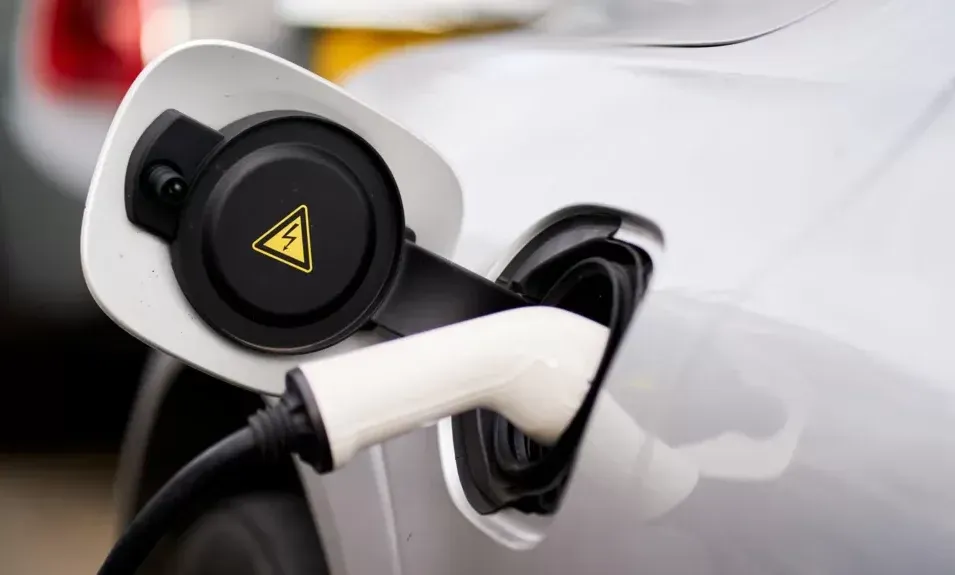On this page
Electric vehicles (EVs) are gaining popularity worldwide as people embrace cleaner and more sustainable transportation. For EV owners, the convenience of charging their vehicle at home is one of the most significant advantages. Installing a home EV charger provides numerous benefits, from saving money to enhancing battery health and even increasing the value of your property. Let’s explore the key benefits, considerations, and steps involved in installing a home EV charging station.

These chargers can be plugged into a standard 120-volt outlet and typically provide 2 to 5 miles of range per hour of charging. They are slower and better suited for those with shorter commutes or who don’t drive their EV every day.
These chargers require a 240-volt outlet, similar to the outlets used for larger appliances like dryers. They can deliver 10 to 60 miles of range per hour, making them a better choice for daily drivers who need a faster charge. While Level 2 chargers may require a higher initial investment, they offer more convenience and faster charging times, ideal for most EV owners.
Before installing a home EV charger, there are a few key considerations:
Your home’s electrical panel needs to support the additional load of a Level 2 charger. An electrician can evaluate your electrical panel to determine if upgrades are necessary to handle the extra demand.
Ideally, the EV charger should be installed near where you park your vehicle, typically in the garage or a designated parking area. Accessibility to the 240-volt outlet is important, and the installation should accommodate both safety and convenience.
Some areas may require permits for installing a Level 2 charger due to the added electrical load. Local building codes and regulations might also dictate the placement and wiring requirements. A licensed electrician can help navigate these rules and ensure compliance.
Although most EV chargers are universal, it’s essential to ensure compatibility with your EV model. Some EVs have specific charging requirements, and you should confirm that the charger you select meets the needs of your vehicle.
Evaluate Your Electrical System: Contact a certified electrician to assess your home’s electrical panel and determine if any upgrades are needed to support a 240-volt charger. In some cases, the electrician may recommend increasing your service capacity to handle the additional load.
Select a charger that meets your needs in terms of charging speed, compatibility, and cost. Research brands and read customer reviews to find a reliable, high-quality option.
Depending on your location, a permit may be required for installation. Your electrician can often handle the permit application and inspection process, ensuring that the installation meets local codes.
Have a licensed electrician install the charger, as this involves working with high-voltage wiring. The electrician will mount the charger on the wall, connect it to the electrical panel, and ensure proper grounding and safety.
Once installed, test the charger to ensure it’s working correctly and that it communicates effectively with your vehicle. Most Level 2 chargers come with built-in diagnostics to confirm a successful installation.
The cost of a home EV charger installation can vary widely based on factors such as charger type, electrical upgrades, and labor fees. Here’s a breakdown of typical costs:
Level 1 chargers are usually less expensive, with prices ranging from $300 to $600. Level 2 chargers can cost between $500 and $1,200, depending on features and brand.
If your electrical panel needs an upgrade, this could add $1,000 to $2,500 to the total cost.
Hiring a licensed electrician for installation can cost between $300 and $1,000, depending on the complexity of the installation and your location.
To encourage the adoption of electric vehicles, many governments and utility companies offer incentives or rebates for installing home EV chargers. For instance, in the United States, the federal tax credit can cover up to 30% of the cost of a residential EV charger, including installation fees, up to a maximum amount. Some utility companies also offer rebates, which can further reduce installation costs. Be sure to research available incentives in your area, as these can significantly reduce the overall investment required.
Beyond convenience and cost savings, a home EV charger contributes to a more sustainable lifestyle. By charging your EV at home, you can reduce the carbon footprint associated with gasoline-powered vehicles. Additionally, if you have access to renewable energy sources, like solar panels, you can power your EV with green energy, reducing your reliance on fossil fuels and decreasing greenhouse gas emissions.
Installing a home EV charger provides numerous benefits for EV owners, from cost savings and battery health improvements to added property value and environmental impact. While the initial investment may require careful planning and consideration, the long-term convenience and financial rewards make it a worthwhile decision for many. With the growing trend toward electric mobility, a home charging station is not just a convenience; it’s an investment in a cleaner, more sustainable future.